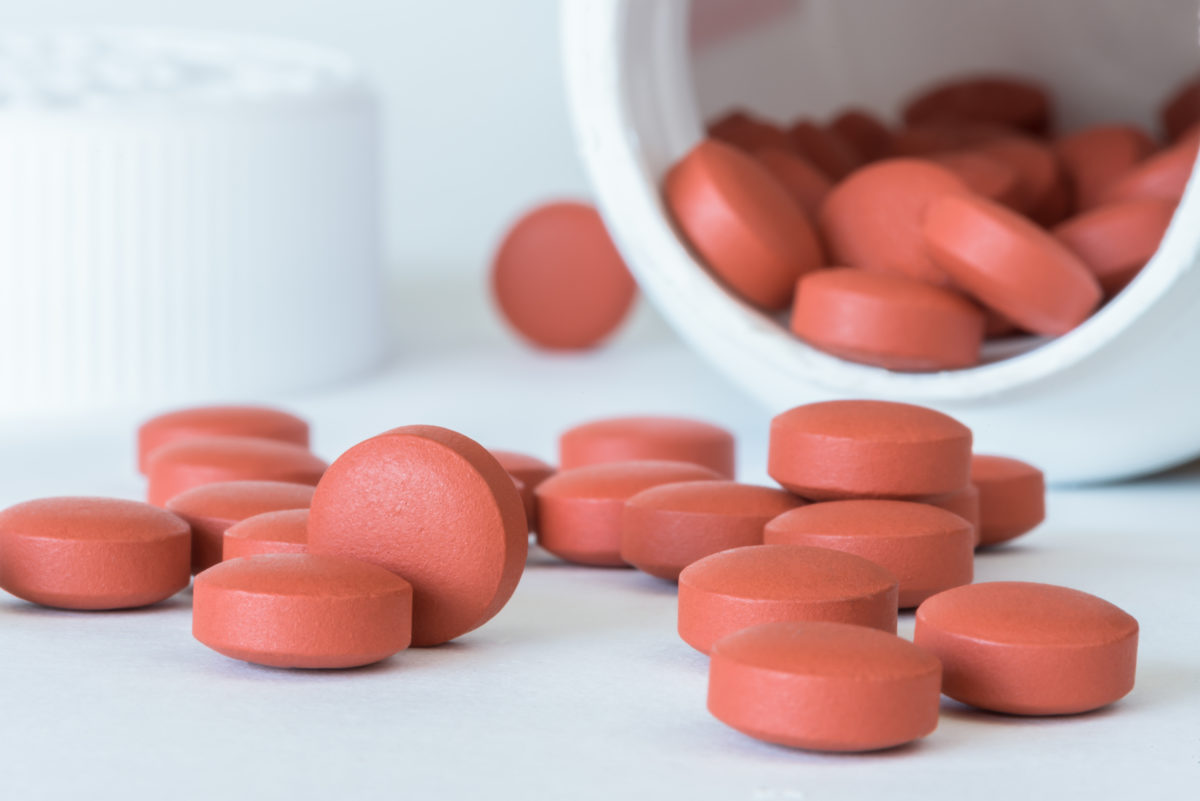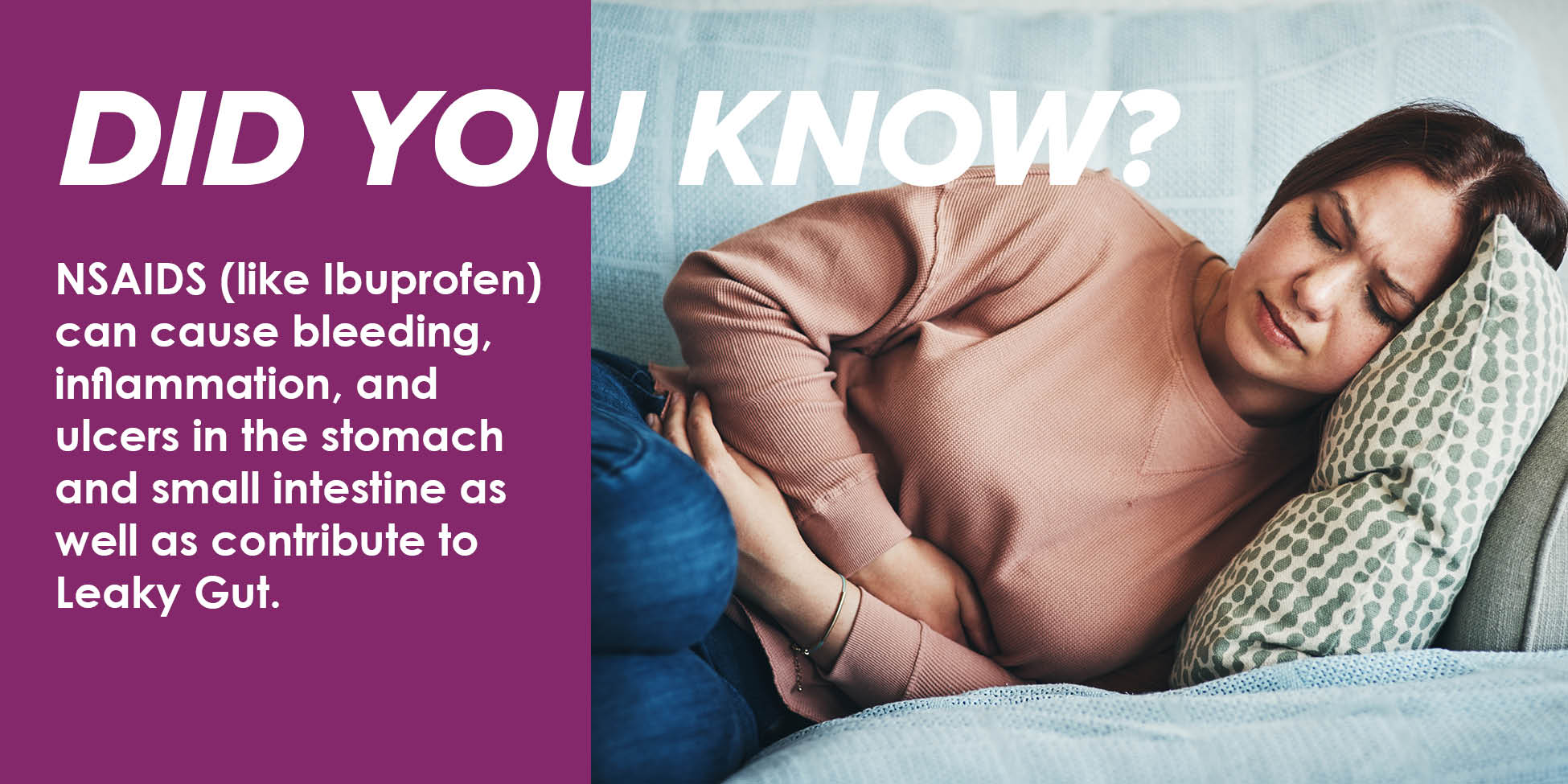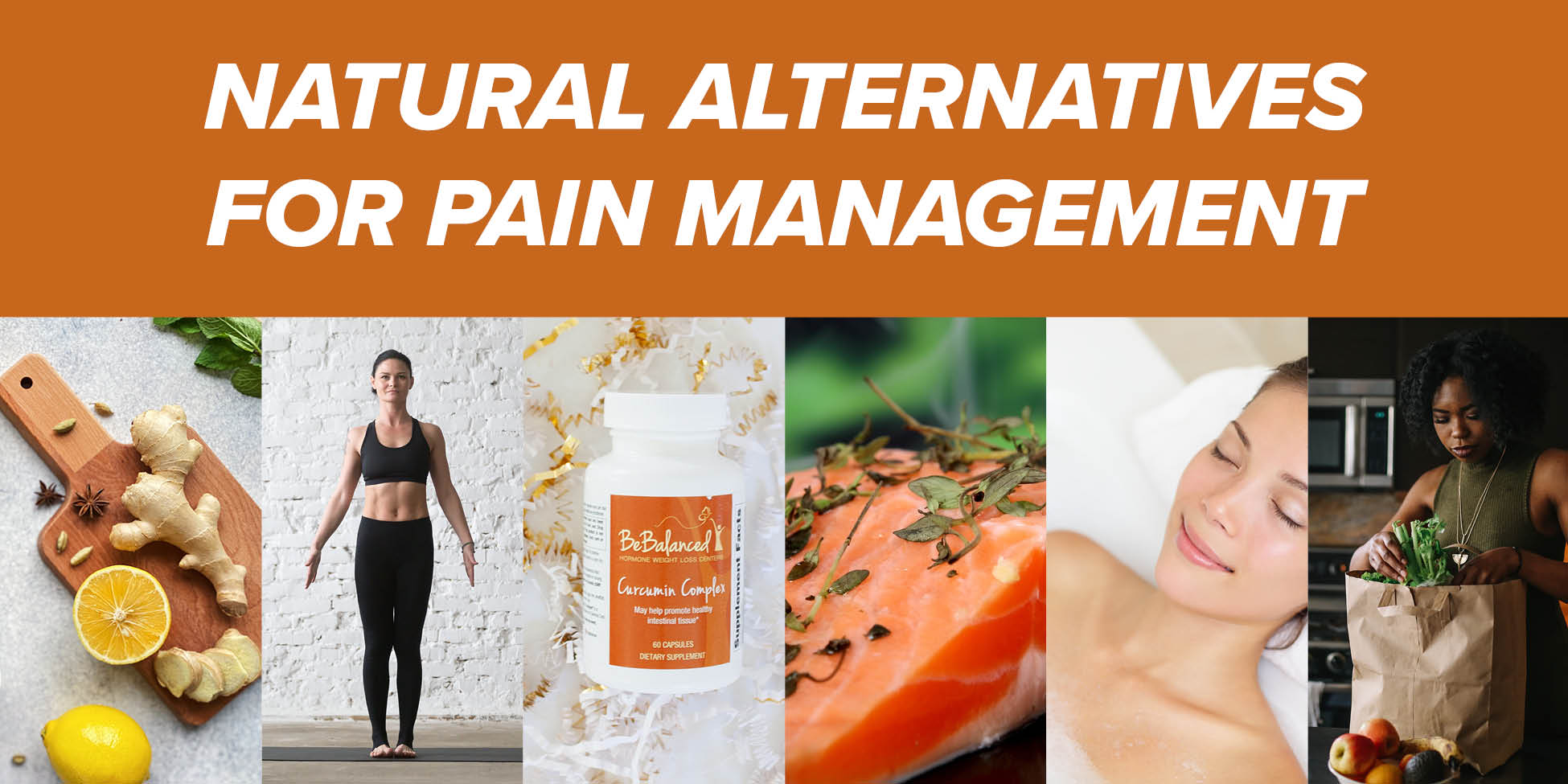
Headache? Joint pain? Cramps? “Take some Ibuprofen.” In America, especially, we have become so accustomed to popping a pill for whatever ails us. If you have taken Advil (Ibuprofen), Motrin, or other nonsteroidal anti-inflammatory drugs (NSAIDs) to relieve the occasional aches, pains, and inflammation, you’re far from alone. According to the American Gastroenterological Association, more than 30 million Americans use NSAIDs on any given day. But the use of these drugs could be doing your body more harm than good, especially if you take them on a regular basis. That’s why we’ve compiled a list of natural alternatives for pain management that don’t have the negative side effects of NSAIDs.
First, we want to mention that by no means is the post meant to be judgmental in nature. Rather, it is intended to help educate you so that you are better equipped to help your body heal naturally. So here are some natural pain relief alternatives!
What are the side effects of nonsteroidal anti-inflammatory drugs (NSAIDs)?

NSAIDS (like Ibuprofen) can cause bleeding, inflammation, and ulcers in the stomach and small intestine as well as contribute to Leaky Gut.
It’s been widely known that NSAIDs can cause bleeding, inflammation, and ulcers in the stomach and small intestine. Recent research suggests that this is the result of dysbiosis, or changes in the gut microbiome balance brought on by these medications. This can manifest as an imbalance between “good” and “bad” bacteria in the gut. Countless studies reveal that some of the most commonly taken drugs and compounds can have dramatic effects on the gut’s microbiome. Ibuprofen, for example, can wipe out gut bacteria in a fashion similar to antibiotics.
NSAIDs also increase your intestinal permeability, which means they widen the tight junctions in your gut cell wall. This means that more toxins and more food particles get into your bloodstream faster (a conditional known as Leaky Gut).
So, what are some natural alternatives to relive pain and inflammation?

Natural Alternatives for Pain Management
Although stress, diet, and hormone imbalances are all major factors that impact joint pain, headaches, and inflammation, there are natural alternatives to NSAIDs that can help.
Although there are many ways to naturally reduce pain, here are a few of our top choices.
Ginger
People have used ginger in medicine for thousands of years. The powerful anti-inflammatory ginger is more effective than drugs like ibuprofen for pain relief, according to a 2013 study published in the journal Arthritis.
Curcumin
Curcumin is an extremely potent free-radical fighting compound that naturally occurs in the spice turmeric. Our professional-grade Curcumin Complex contains a blend of synergistic ingredients including curcumin, ginger, and rosemary along with amino acids, vitamins, and enzymes to help reduce the synthesis of certain prostaglandins that cause inflammation.
Omega-3
Omega-3 fatty acids have numerous benefits, however their biggest benefit is facilitating a healthy inflammatory response. Food sources that contain Omega-3 include:
- Fish and other seafood (especially cold-water fatty fish, such as salmon, mackerel, tuna, herring, and sardines)
- Nuts and seeds (such as flaxseed, chia seeds, and walnuts)
- Plant oils (such as flaxseed oil)
Magnesium
Magnesium can help curb the pain of migraines, muscle spasms and fibromyalgia. The foods that are highest in magnesium are things like sunflower seeds and pumpkin seeds. Consider taking a high-quality magnesium supplement daily. You can also take a bath in Epsom salt. Epsom salt is one of many naturally occurring mineral salts, a compound of magnesium and sulfate and has been shown to relax muscles and relieve pain.
Essential Oils
Rub chamomile, lavender or sage into temples, chest or sore joints to relax muscles and calm the mind. Aromatherapy also help relieve stress, which is often a root cause of pain and tension.
Light Exercise
When we exercise, our body releases various compounds that modulate pain perception, including anti-inflammatory cytokines, endocannabinoids (signaling molecules that help regulate various processes, such as pain), serotonin (the “feel good” hormone), and endorphins (the body’s natural painkiller).
Some scientific evidence indicates that certain types of activity may benefit individuals with various chronic pain conditions, including:
- Aquatic exercise
- Low to moderate aerobic exercise and strength training, which have been shown to reduce pain in individuals with fibromyalgia
- Tai chi, which may reduce arthritic pain
- Yoga, which may improve mental health symptoms in individuals with chronic pain
Avoid Inflammatory Foods
The foods listed below cause stress on the body which generates inflammation. Avoid these foods whenever possible.
- Added sugar, artificial sugar substitutes, and high fructose corn syrup
- Hydrogenated oils
- Refined carbohydrates
- Alcohol
- Processed meats
Eat a diet rich in Anti-inflammatory foods
Researchers have indicated that certain dietary components may reduce pain as a result of managing inflammation and oxidative stress. Anti-inflammatory food include:
- Berries
- Avocados
- Fatty fish
- Broccoli
- Tomatoes
- Extra virgin olive oil
- Turmeric
- Green leafy vegetables (like spinach and kale)
- Tree nuts
Schedule a FREE consultation with one of our compassionate specialists
At BeBalanced, we know that simple changes to your diet and lifestyle choices can make a major impact on your health and well-being. That is why we offer a variety of wellness programs and products that are focused on reducing stress and inflammation, as well as improving your immune system and symptoms related to hormone imbalances such as joint pain, anxiety, sleep issues, low energy, hot flashes, mood imbalances, stubborn weight and more.
To get started, take a free hormone assessment, or schedule a free consultation at any of our centers nationwide.
Be well!

